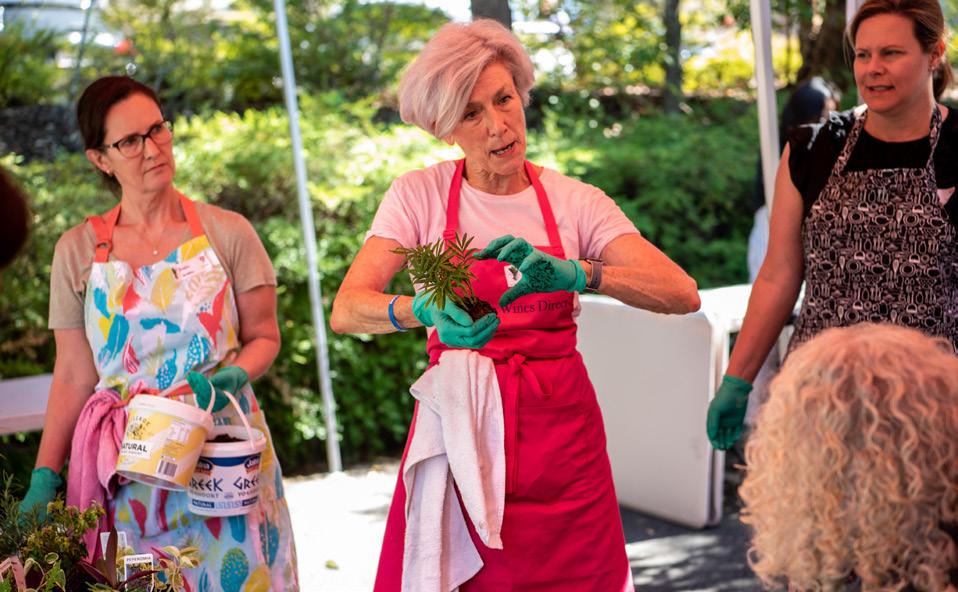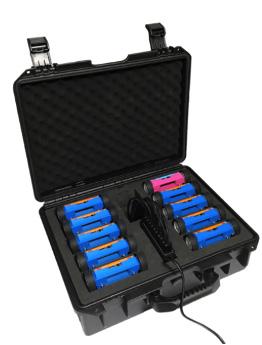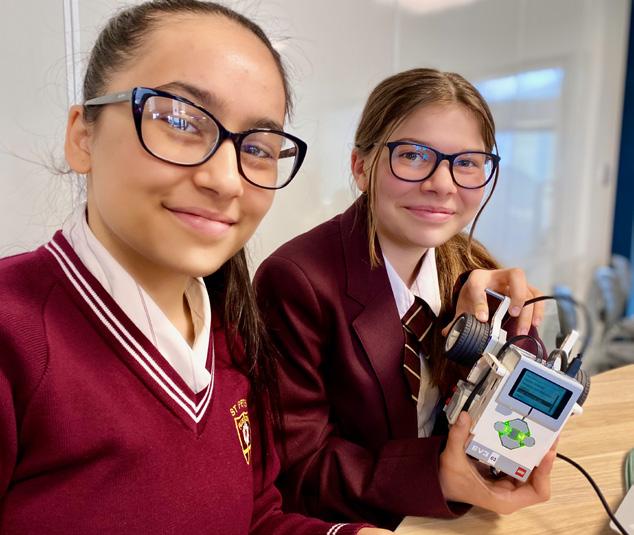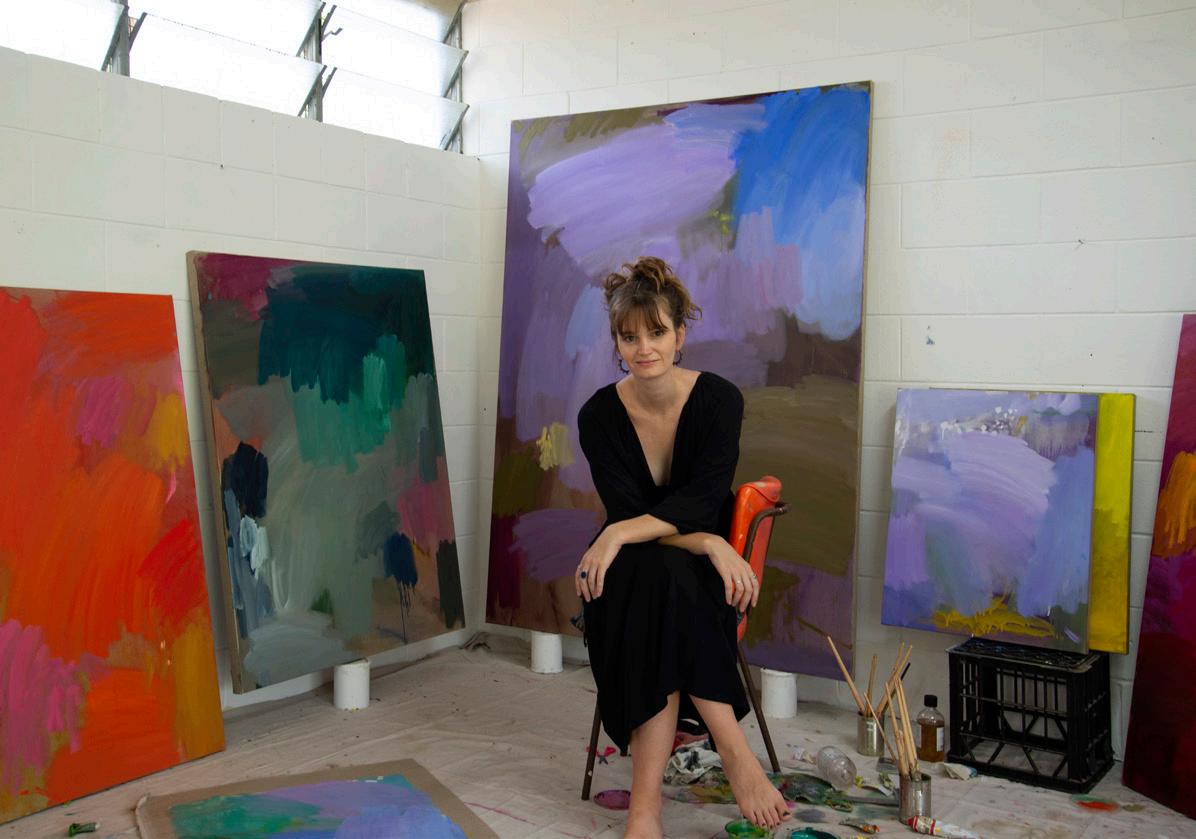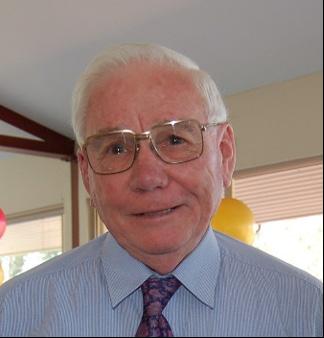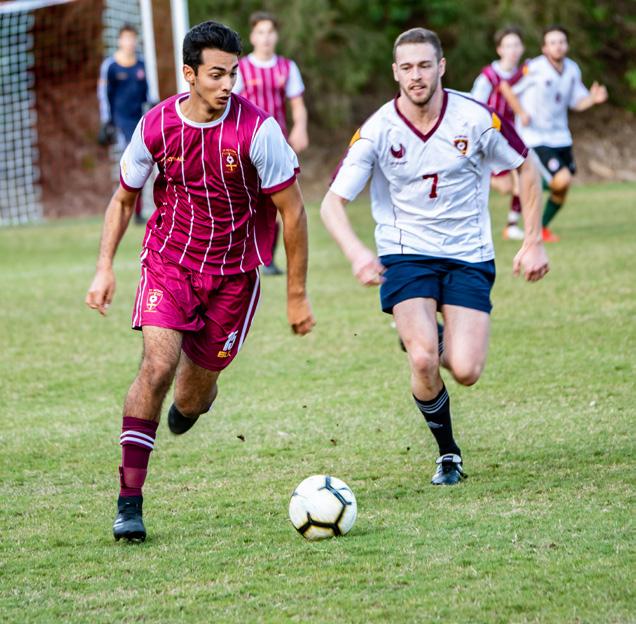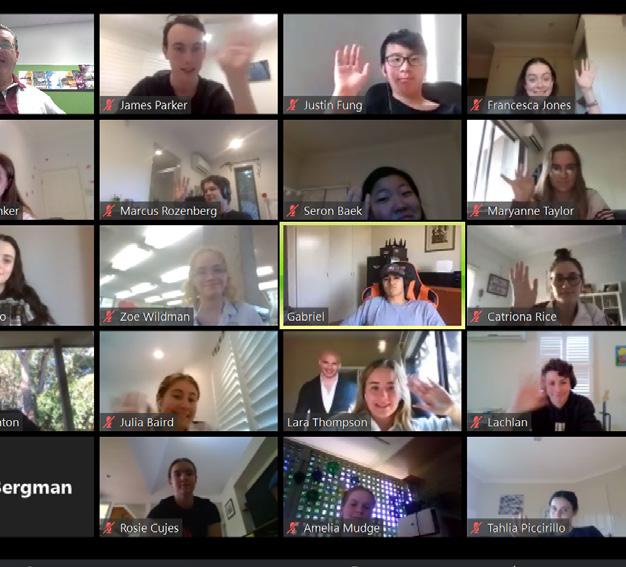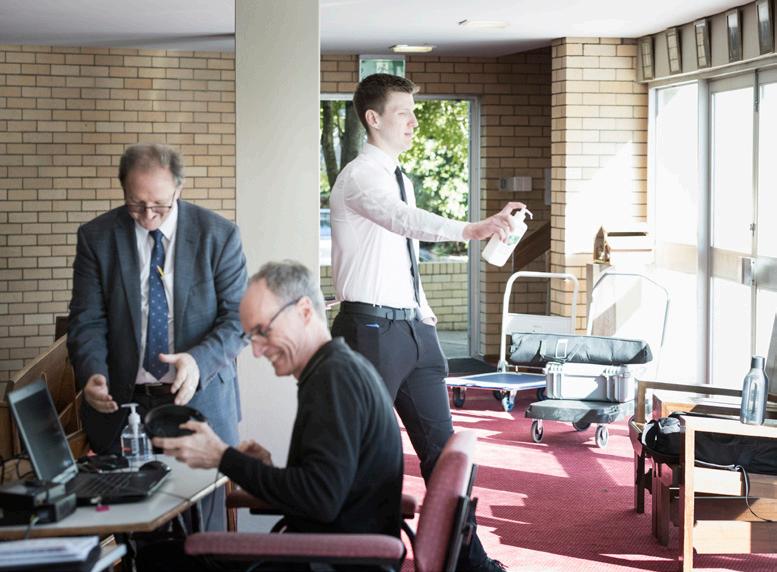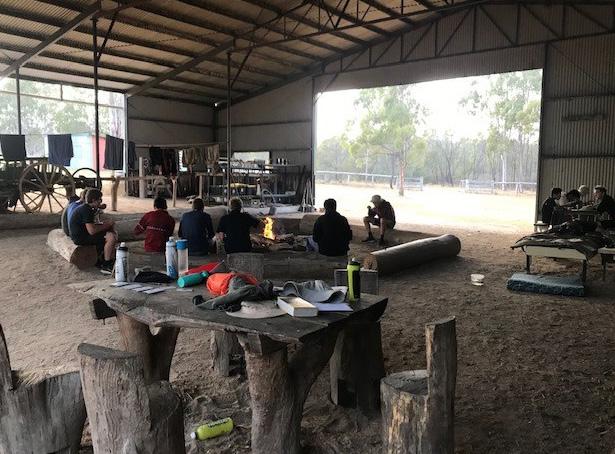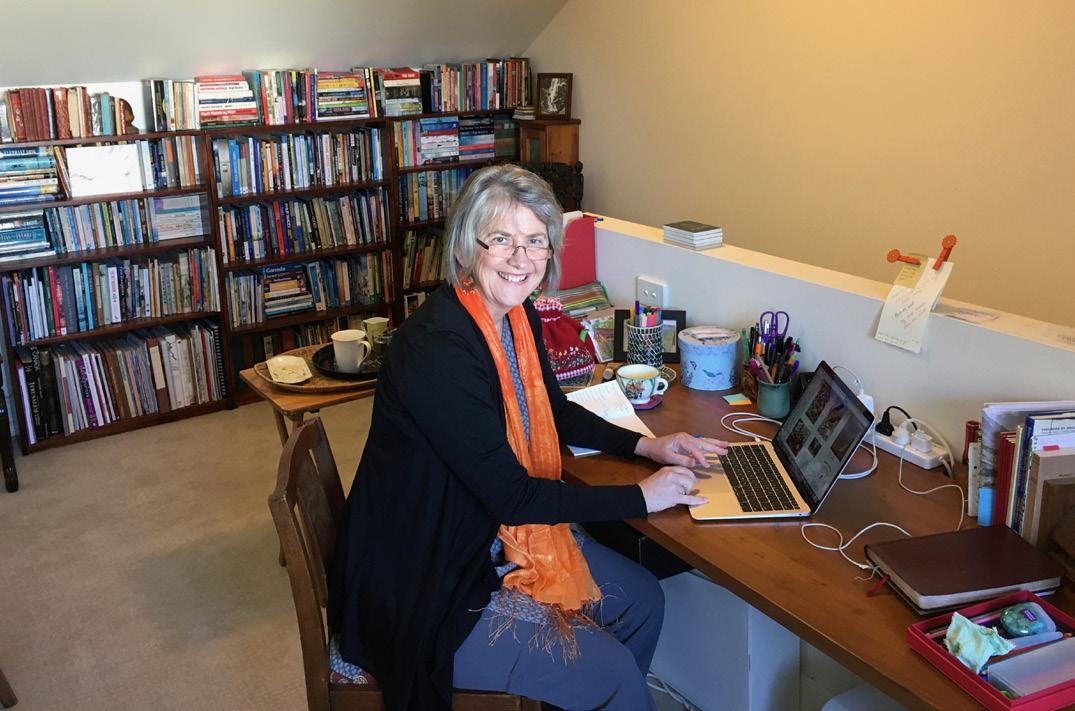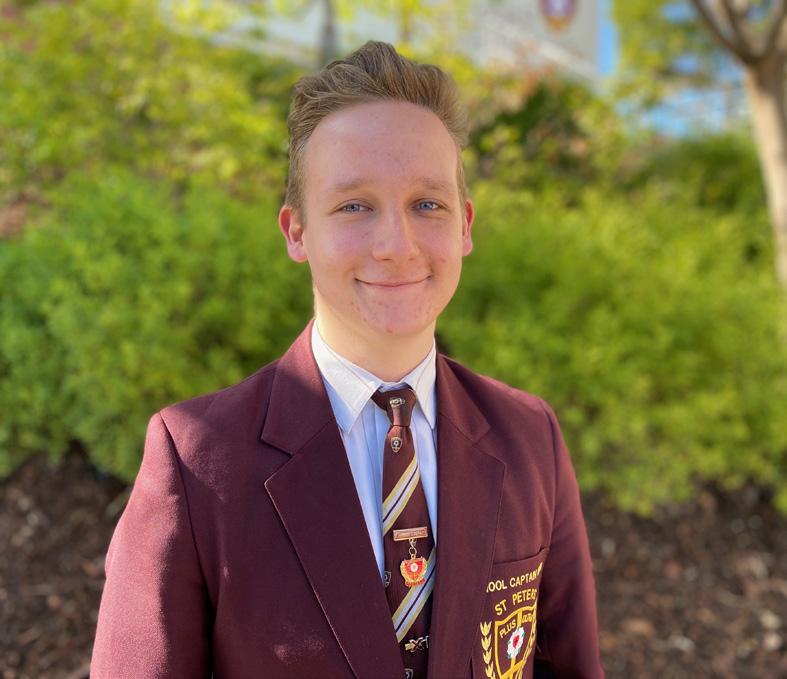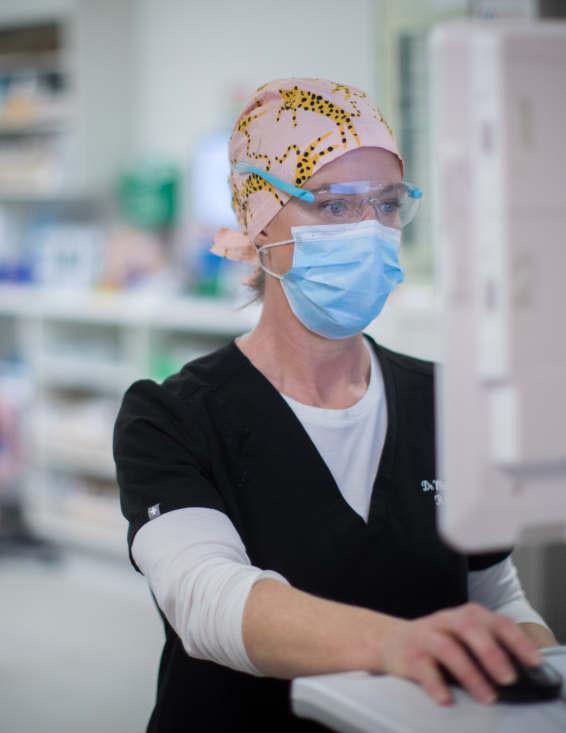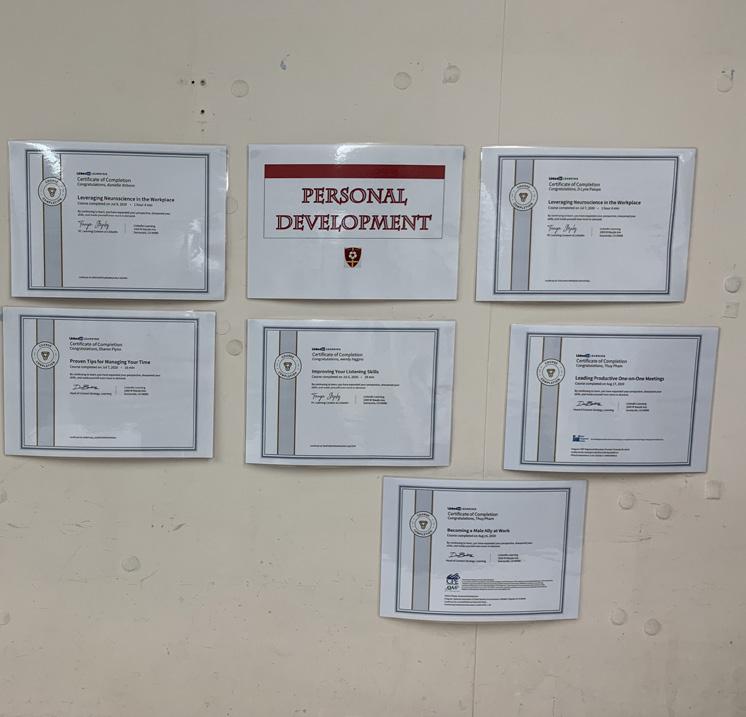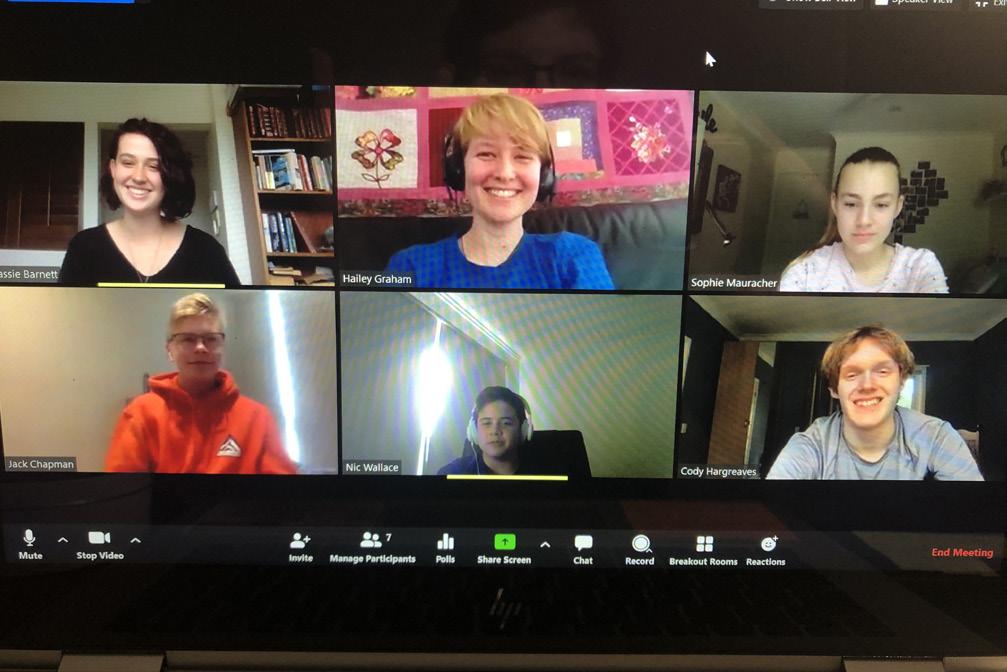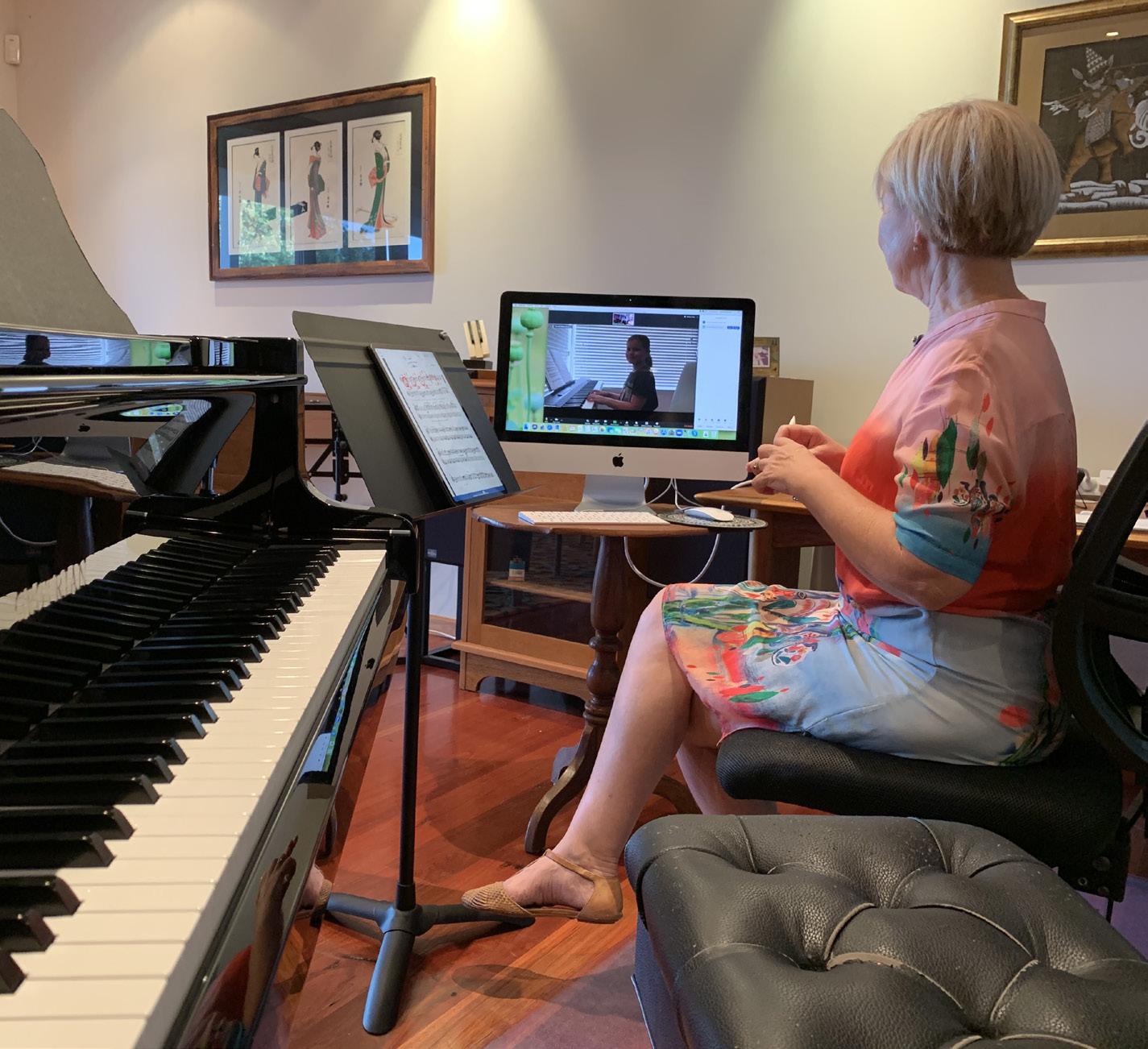1414
PANDEMIC PAPERS
BRINGING ORDER TO CHAOS Dr Sarah Whitelaw (1991) is an Emergency Physician at Royal Melbourne Hospital (RMH). She’s been there for the last 10 years after shorter stints on the Gold Coast, in Brisbane and London. She’s also on the board of the Australian Medical Association (AMA) and is married with two children.
C A SSIE T WEMLOW
publications officer
I
f you think you recognise this face, you might. Pre-COVID, Dr Whitelaw appeared on the Nine Network’s Emergency (filmed at RMH)—a series that she now looks back on as a completely different time. No PPE; no social distancing but, an insight into the Emergency Department’s love and commitment to their jobs. Dr Whitelaw says she chose emergency medicine because she enjoys the clinical side of things. “It’s a very teamwork-based speciality and involves a lot of communication. I enjoy that aspect of chatting with lots of different people and bringing order to chaos.” The Emergency Department, Dr Whitelaw says, is ‘never boring and sometimes slightly out of control’—a place where reactive behaviour often trumps meticulous planning due to urgency and demand. This year, that has only increased. As Senior Doctor in Charge, Dr Whitelaw, noticed her daily routine changed significantly with the arrival of COVID-19. Despite Victoria’s lockdown, a combination of restrictions in regional areas (and subsequent motor vehicle accidents) and accidents in the home (falls and burns) meant that patient volume in trauma didn’t decrease. RMH patient numbers remained the same, however they transitioned naturally to more COVID-related cases. Dr Whitelaw shared that, not only Coronavirus itself, but the related issues of an "increase in volume of patients with significant, chronic, complex mental health problems;
Plus Ultra | November 2020
ongoing issues with addiction; psychosis," are problems no one predicted at the start of the outbreak. While acknowledging that she finds her work very satisfying, Dr Whitelaw said there have been moments of struggle. This exertion has stemmed from the cases themselves, but also the relentless behind-the-scenes preparation, education and continual need to change and update their systems (and then communicate them to a hospital with 350-500 staff!). “We’re so lucky to have PPE available, but it is enormously physically demanding to wear full PPE all day every day,” Dr Whitelaw explained. “You’re half dehydrated, half in obstructed renal failure [because you’re unable to easily use the bathroom] and always have a headache. It hurts to wear the mask. A lot of people find it irritates their skin.” Not only that, but the PPE makes it difficult to communicate. “It’s really hard to comfort patients,” Dr Whitelaw continued. “That’s really distressing for a lot of people.” This added layer of complexity, to an already high-stress profession would be difficult for anyone, let alone ED staff who’ve been dealing with it for six months. “It’s taking its toll,” Dr Whitelaw stressed. Dr Whitelaw’s husband is also a doctor and one thing they have struggled with over the last few months is the constant worry that either one of them might bring an infection home and pass it on to other

